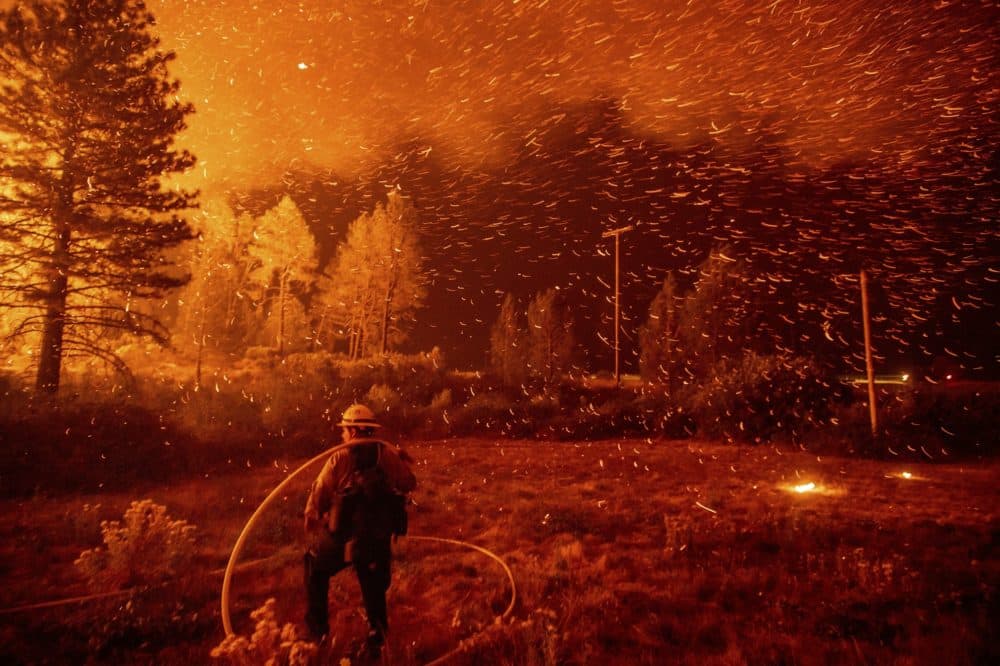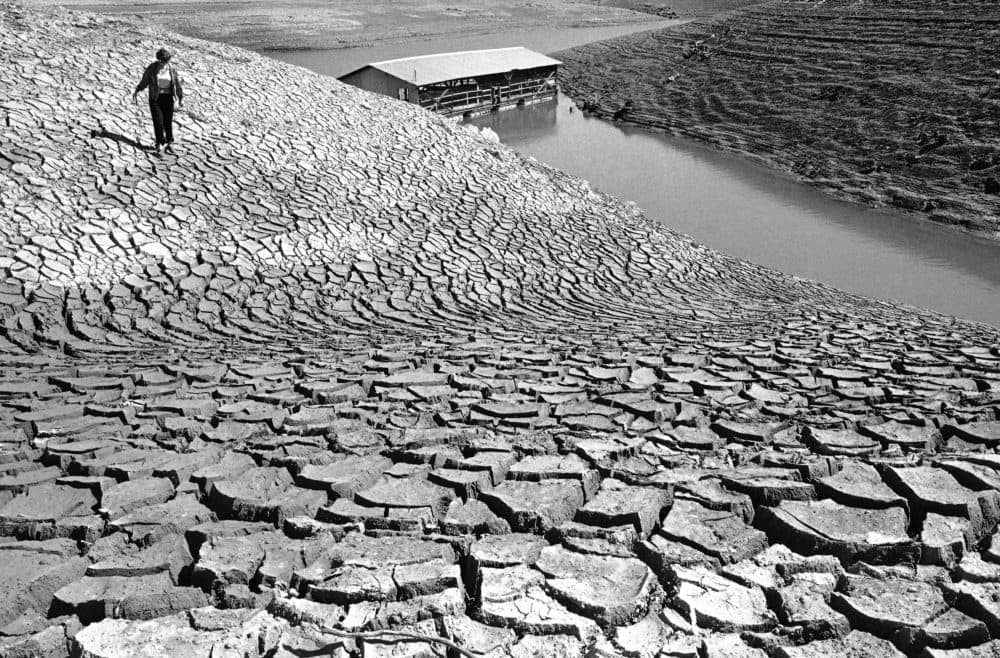Advertisement
Commentary
The Climate Catastrophe Calls For Optimism And Action

It was one of those jarring moments — Americans looked up from their cell phones this week to see climate change barreling toward them, its attendant terrors in sharp focus.
A new report from the United Nations Intergovernmental Panel on Climate Change demolishes the notion that climate change will be a problem only for future generations. According to the IPCC, the nations of the world have just a little more than a decade to make the radical changes needed to avoid a 1.5 degrees Celsius (or 2.7 degrees Fahrenheit) increase in global average temperature over the pre-industrial baseline.
That seemingly small increment would be enough to make the Earth a very nasty planet to live on.
Beyond that threshold, the IPCC report forecasts dying coral reefs, violent storms, coastal flooding, heat waves that bake cities and droughts that wither crops — effects previously foreseen only at later dates and higher temperatures.

The authors say there’s still time to avert the 1.5-degree Celsius rise, but doing so would require a transformation so sweeping that it’s difficult to imagine how it would be possible. It would take a trajectory to eliminate greenhouse gas emissions completely by 2050, a goal that seems remote for a world economy mired in fossil fuels like a dinosaur neck-deep in a tar pit. Do we honestly expect the Saudis will stop selling their oil, the Australians their coal, the Russians their gas?
And the role of the U.S. as a global superpower depends heavily on dominating the production, transport and consumption of fossil fuels, which explains why President Trump has pursued policies antithetical to weaning us off of them. The current administration has opened up the Arctic for oil exploration, expanded fracked gas production, loosened restrictions on coal-fired power plant emissions, weakened automobile fuel economy standards, and eased rules on methane flaring. It’s a federal energy policy seemingly designed to cook the planet.
When the government fails, people look to the private sector. But that’s a long shot, too. Apple, Amazon, Google and the like may build solar farms, but manufacturing, transportation and heavy industries will take decades to eliminate their carbon emissions. A carbon tax is essential for correcting markets where prices don’t capture the true cost of pollution, but by itself is not a strong enough signal to constitute a solution.
What moves the needle on your moral compass?
So it takes extraordinary optimism to believe that humanity can achieve, by 2040, the changes required to forestall the IPCC report’s dark vision.
Our relationship with nature has changed. In the mid-20th century, the hope was to minimize the impact of human activity on the world’s ecosystems, to coexist and let all living things flourish. Now, our best course is to manage the damage we’ve caused as we search for a sustainable equilibrium. The coral reefs are doomed, but maybe we can figure out how to avoid food shortages, mass migration and further destruction of species that remain. Getting to that point requires that we first integrate climate awareness into our moral stance as humans.
What moves the needle on your moral compass? People naturally want to leave their children and grandchildren with a livable planet. Others see their duty in preserving the long-term viability of the human species. And then there are those who feel a deep responsibility to the non-human species unjustly affected by human wrongs.

However you conceive your obligation, it should occupy a central place in your worldview, and it must move you to political engagement. As the consequences of the changing world become acute, climate awareness must inform how we live our lives. That includes holding our elected officials accountable. A commitment to confronting climate issues is a requirement of all the people we vote into office — a political must-have.
In the coming decades, this world’s climate will be meaner than it has to be. Humans have the knowledge and the technology to make the necessary transition away from carbon-based fuels, but shortsighted political self-interest and entrenched financial stakeholders will get in the way. The world will enter a phase of continual adaptation as the climate deteriorates.
That decline doesn’t signify resignation and defeat. More than at any other time in history, the human race must shoulder the burden of caring for the Earth, as one cares for a patient with a chronic illness.
The IPCC report is frightening, but it must not be paralyzing. Rising to the challenge of climate change, never more urgent, is still within humanity’s reach.
